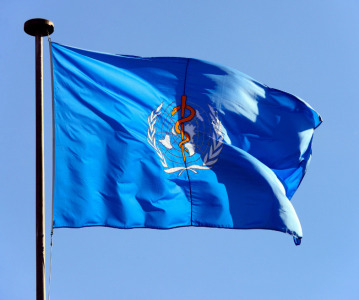New Report Shows UK Cancer Patients Face Increasing Coverage Restrictions Due to Centralized Cost-Effectiveness Standard

New research results quantify the extent to which centralized value assessments by the UK’s National Institute for Health and Care Excellence (NICE) lead to coverage denials and patient access restrictions to new drugs and biologics. The analysis conducted by Context Matters, and sponsored by the Pharmaceutical Research and Manufacturers of America (PhRMA), shows that use of centralized cost-effectiveness standards by NICE and similar appraisals in other countries limit patients’ access to new cancer treatments, which evolve rapidly and are increasingly personalized.
According to the Context Matters analysis of NICE decisions during the last 7 years (2007–2013):
• NICE rejected all six cancer medicines that it reviewed in 2013
• Cancer medicines were more than three times likely to be rejected than non-oncology medicines
• Nearly 60% of oncology medicines were rejected, compared with only 16% of non-oncology products
• Almost 80% of cancer medicines reviewed in the last 7 years have been given some kind of access restriction.
“These findings underscore the challenges created by coverage and payment policies that rely on centralized, one-size-fits-all value assessments,” said John J. Castellani, President and CEO, PhRMA. “While it’s important to ensure healthcare decisions are grounded in the best available evidence, it is also essential to ensure it is not misapplied in ways that deny patients’ access to valuable treatment advances. We need approaches that put the patient at the center of healthcare decision making and support patients and physicians in choosing the treatment options that best meet the individual’s needs.”
Castellani noted that the 5-year relative survival rates for cervical, breast and colorectal cancer are higher in the US (67%, 90% and 65% respectively) than they are in the UK (59%, 78% and 51%, respectively).
Dr Yin Ho, Founder and CEO of Context Matters, said the findings of this analyses “calls into question whether current HTA models are sufficiently flexible to account for variability in patient needs and preferences and recognize the way that understanding of a new treatment’s value emerges over time.” Dr Ho was also an author on the study.
Additional analysis released by Context Matters indicated global variability in the HTA decisions of several major countries’ organizations compared with the UK’s NICE. NICE agreed with other agencies 56% of the time over oncology reviews, and 81% for non-oncology reviews.
“The degree of variability of these decisions, especially for cancer medicines, illustrates the complexity of the environment our innovator companies must navigate in order to deliver life-saving medicines to patients,” said Castellani. “The fact that the same body of high quality evidence can elicit such different decisions reveals the subjective nature of these assessments.”
Related News
-
News Pharmaceutical industry supports COP28 health stance in joint statement
As COP28 takes place over this week in Dubai, UAE, several bodies in the pharmaceutical and health industries have come together to announce support of key movements in sustainability in the sector, and to recognise sustainability as a health issue.&nb... -
News Biden backs Cold-War measures to shore-up medical supply chains
In a recent strategy to combat rising inflation and the cost of living crisis, President Joe Biden has invoked a Cold War-era act to increase investment in a selection of medicines and supplies. -
News CPHI Podcast Series: What does the changing US Pharma market mean for industry and patients alike?
In this week's episode of the CPHI Podcast Series Lucy Chard, Digital Editor for CPHI Online is joined by James Manser to discuss the political and market changes in the US pharma field. -
News Which 10 drugs are open to price negotiation with Medicare in the USA?
The Centres for Medicare & Medicaid Services, under the Biden administration in the USA, has released a list of the 10 drugs that will be open to price negotiations as part of the new legislation under the Inflation Reduction Act (IRA). -
News 10 Major Drug Approvals So Far in 2023
Last year, 37 novel drugs were approved by the FDA, this was a high number for such a category, and covered many fields including oncology, demonstrating how promising further research is, and how it is only continuing to build. To date, there are alre... -
News Novartis agrees for copies to be made of cancer drug to reach poorer countries
Novartis signs agreement with MPP to have generics of it's leukemia drug made so that it can be more easily distributed to the world's poorer countries. -
News CPHI Podcast Series: outsourcing and manufacturing trends
Listen to the CPHI Podcast Series this June to hear Gil Roth of the PBOA speak with Digital Editor Lucy Chard about the biggest trends and topics to watch in pharma outsourcing and manufacturing at the minute. -
News New WHO health emergency guidelines expect full transparency from Big Pharma
The WHO are proposing a new set of pandemic guidelines to set out how future global health crises should be handled.
Position your company at the heart of the global Pharma industry with a CPHI Online membership
-
Your products and solutions visible to thousands of visitors within the largest Pharma marketplace
-
Generate high-quality, engaged leads for your business, all year round
-
Promote your business as the industry’s thought-leader by hosting your reports, brochures and videos within your profile
-
Your company’s profile boosted at all participating CPHI events
-
An easy-to-use platform with a detailed dashboard showing your leads and performance







